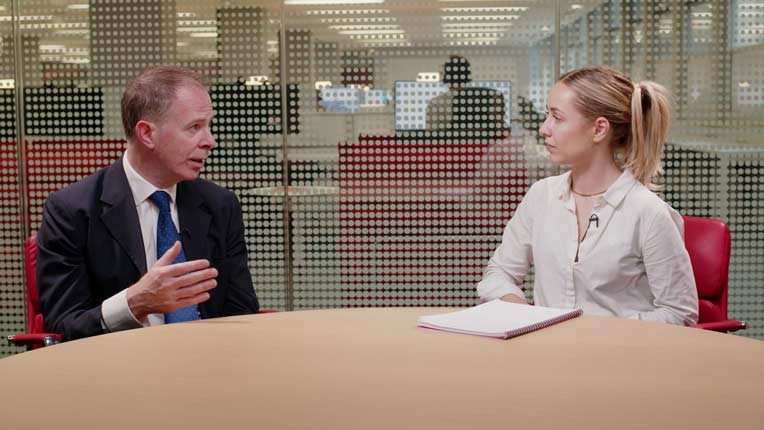Holly Black: Welcome to the Morningstar series, "Why Should I Invest With You?" I'm Holly Black. With me is Paul Major. He is co-manager of the BB Healthcare Trust. Hello.
Paul Major: Hi, how are you?
Black: I'm good. So, I'm guessing kind of a bit does what it says on the tin, but I'll ask anyway. What does the trust do?
Major: So, we run an unconstrained, concentrated global healthcare fund. So, what that basically means is, we can do whatever we like within the remit of healthcare. And we're looking for best ideas, but it's framed within a top-down macro view, which is essentially the healthcare systems in the Western world are broken. They're not really fit for purpose in a world dominated by an elderly population with a burden of chronic disease. And in order to tackle that we have to sort of reframe how healthcare is delivered to the population. So, we invest in the companies that are delivering those opportunities to really change the paradigm to make it better for patients but at the same time, more or cost effective. So, most of the companies that we invest in are very much away from the traditional large form medical device companies that will make up the bulk of most traditional healthcare firms. So, it's quite different.
Black: That is interesting because you tend to think of, you know, just blockbuster drugs when you think of a healthcare fund, but actually, there's a lot of ones doing the technology in the back-office systems and things like that.
Major: Well, if you think about healthcare as a cost, you're probably right. Because what every country is struggling with affordability, everybody wants better healthcare. But getting the population to pay more tax or getting individuals to pay higher premiums for private insurance is very challenging. And so, if you look at this sort of the pie chart of where money gets spent, drugs get all of the publicity, but actually, across the OECD, and even in the US where it's a big issue, you know, Donald Trump's campaign for lower drug prices at the moment as of the Democrats, it's only about 9% of healthcare expenditure. The biggest chunk, about 60%, is the interaction between doctors and patients. And when you start looking at stats like $1 in $4 spent in healthcare is wasted on administration; one in four medical visits between the doctor and patient are completely not medically necessary. You understand there's a tremendous amount of opportunity to save money and improve the quality of care without going to any of that stuff. So, it's not very sexy to talk about, as you say, data systems and administration things. But that's actually where with the revolutions that have happened in technology, you've got these tremendous opportunities to deliver very, very different style of healthcare moving forward.
Black: So, I think healthcare is a sector that's going to be in the spotlight this year, because we do have the US election coming up and it always tends to be a big topic. So, what is your outlook for the year?
Major: So, usually, you'd be right. In the US election year, it would generally be the right thing to be underweight healthcare versus rest of the market because it's such a heavily debated topic politically. But actually, unusually this year, what's happened is that most of that debate has happened in 2019. So, on both sides, the left and the right, we've got quite a lot of clarity on policy. We've got quite a lot of clarity on the economic consequences of that. And I think you've already seen in the last couple of weeks there's been a big rally in healthcare, that the market has reached conclusions about the likely outcome of the various policy proposals that are out there. So, to a certain extent, the worst-case scenario has already been priced in and then dismissed over the summer of 2019. So, I actually think for 2020 unusually healthcare will work versus the rest of the market despite being an election year.
Black: And you're obviously really bullish on the U.S. because that's where most of your assets are.
Major: Yeah. So, if you accept our premise, which is that healthcare has to change fundamentally, the next obvious question is, where does it change first? And the simple answer to that is, it changes first in the US because the US is a for profit system. There's no greater incentive to invest in new technologies, new approaches than the opportunity to make more money. So, the US is naturally more open to adopting these things. It's also a bit more of an innovative healthcare marketplace, because their venture capitalists are a little bit more sophisticated and risk tolerant than the ones we get in Europe.
Black: So, you've got about 95% of the portfolio there. What I'm interested in is where's the other 5%.
Major: Asia and frontier markets. So, we've got a bit in the Middle East and a bit of exposure in China for obvious sort of demographic reasons.
Black: Super. Well, thank you so much for your time.
Major: Pleasure.
Black: And thanks for joining us.




























